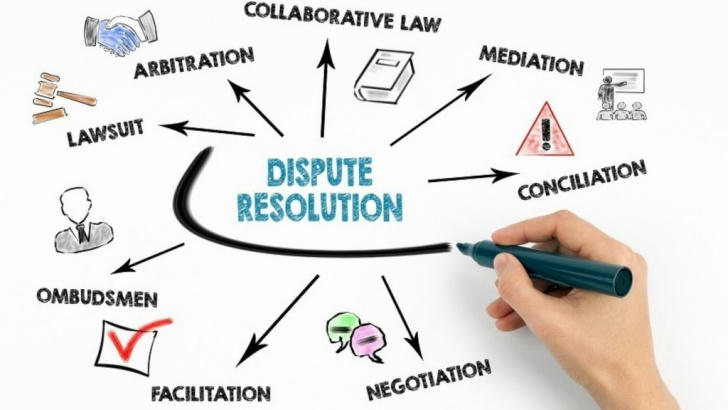Resolving Financial Disputes: A Practical Guide for U.S. Consumers
When it comes to managing your finances, disputes can arise more often than you’d expect. Whether it’s an unauthorized charge on your credit card, a disagreement with your financial advisor, or issues with a loan or investment, understanding how to handle financial disputes is essential. Knowing your rights, the proper steps to take, and when to seek legal help can save you time, money, and stress. In this guide, we’ll walk you through the basics of handling financial disputes in the U.S., so you can protect your assets and resolve conflicts efficiently.

1. Common Types of Financial Disputes
Financial disputes can take many forms. Here are some of the most common ones:
• Banking Issues: Unauthorized transactions, incorrect fees, or errors in your account balance.
• Credit Card Disputes: Fraudulent charges, billing errors, or failure to receive promised goods or services.
• Loan Disagreements: Disputes over interest rates, repayment terms, or hidden fees.
• Investment Conflicts: Mismanagement of funds, misleading advice, or unexpected losses due to broker misconduct.
• Financial Advisor Issues: Breach of fiduciary duty, unsuitable investment recommendations, or lack of transparency.
Recognizing the type of dispute you’re facing is the first step in deciding how to move forward.
2. Know Your Rights
U.S. financial consumers are protected by several important laws and regulatory bodies:
• Fair Credit Billing Act (FCBA): Protects against billing errors on credit cards and provides a clear process for disputing charges.
• Electronic Fund Transfer Act (EFTA): Safeguards consumers from unauthorized electronic transactions.
• Consumer Financial Protection Bureau (CFPB): Provides oversight and a complaint platform for financial services issues.
• Securities and Exchange Commission (SEC): Regulates investment advisors and brokers to prevent misconduct.
• Financial Industry Regulatory Authority (FINRA): Resolves disputes between investors and financial firms.
Understanding your rights under these laws gives you a solid foundation when presenting your case.
3. Steps to Resolve a Financial Dispute

Step 1: Gather Evidence
Before taking action, collect all relevant documents, including statements, receipts, emails, and contracts. Keep detailed records of any communication with the financial institution or advisor.
Step 2: Contact the Company
Reach out to the bank, credit card company, or financial institution directly. Explain the issue clearly and provide any supporting documentation. In many cases, disputes can be resolved at this level.
Step 3: File a Formal Complaint
If the company doesn’t resolve the issue, escalate the matter. File a complaint with the Consumer Financial Protection Bureau (CFPB) or the Financial Industry Regulatory Authority (FINRA), depending on the nature of the dispute.
Step 4: Consider Mediation or Arbitration
Many financial institutions include arbitration clauses in their contracts, which means disputes may need to be settled out of court. Mediation and arbitration are faster and less costly alternatives to litigation, but they require both parties to agree on a resolution.
Step 5: Seek Legal Help
For serious disputes, especially those involving large sums of money or potential misconduct, consult a financial attorney. They can help you understand your legal options and represent your interests in negotiations or court.
4. Preventing Financial Disputes
While not all disputes can be avoided, taking proactive steps can reduce your risk:
• Review Contracts Carefully: Understand the terms of any financial agreement before signing.
• Monitor Accounts Regularly: Check your bank and credit card statements for suspicious activity.
• Work with Reputable Advisors: Ensure financial professionals are licensed and have good reviews.
• Document Everything: Keep detailed records of transactions and communications.
5. When to Escalate a Dispute
If the company is unresponsive or you’re facing significant financial loss, it’s time to escalate. Filing a complaint with the CFPB or seeking arbitration through FINRA often leads to faster resolutions. In cases of fraud or mismanagement, legal action may be necessary.
Conclusion: Stay Informed, Stay Protected

Financial disputes can be stressful, but understanding your rights and knowing how to take action can make all the difference. By staying organized, documenting your case, and using the proper channels, you can resolve conflicts efficiently and protect your financial health. If needed, don’t hesitate to seek legal advice to ensure your interests are fully represented.
When it comes to your money, knowledge is your best defense.
